Category: Eastern vs Western Thought
-
Collective Identity in Confucianism vs Individualism in Liberalism

Collective Identity in Confucianism vs Individualism in Liberalism The contrast between collective identity in Confucianism vs individualism in liberalism illustrates two divergent visions of selfhood, society, and morality. One sees the individual as fundamentally relational, formed and bound by duties and roles. The other sees the individual as a sovereign unit, possessing rights and autonomy…
-
Moral Duty: Confucius vs Kant
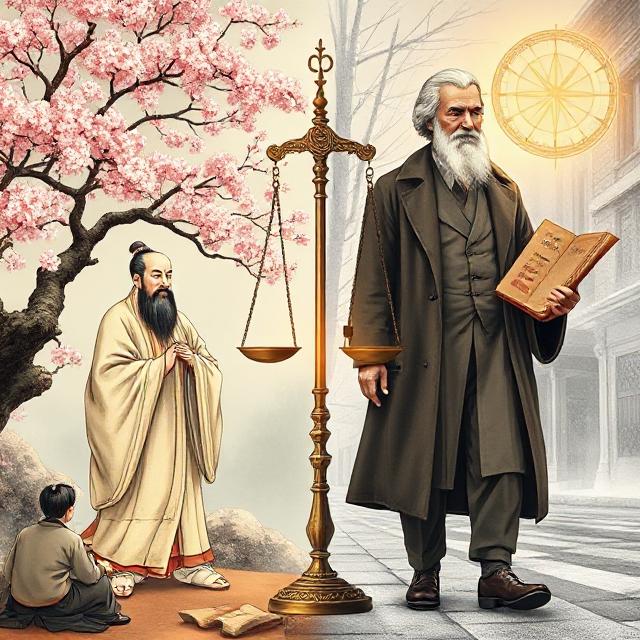
Moral Duty: Confucius vs Kant Moral duty is a cornerstone of ethical thought across civilizations. Yet how it is understood differs vastly depending on cultural and philosophical contexts. This post explores two monumental ethical frameworks: Confucianism from the East and Immanuel Kant’s deontological ethics from the West. The focus keyword Moral duty: Confucius vs Kant…
-
Laozi’s Naturalness vs Aristotle’s Virtue: Two Visions of the Good Life
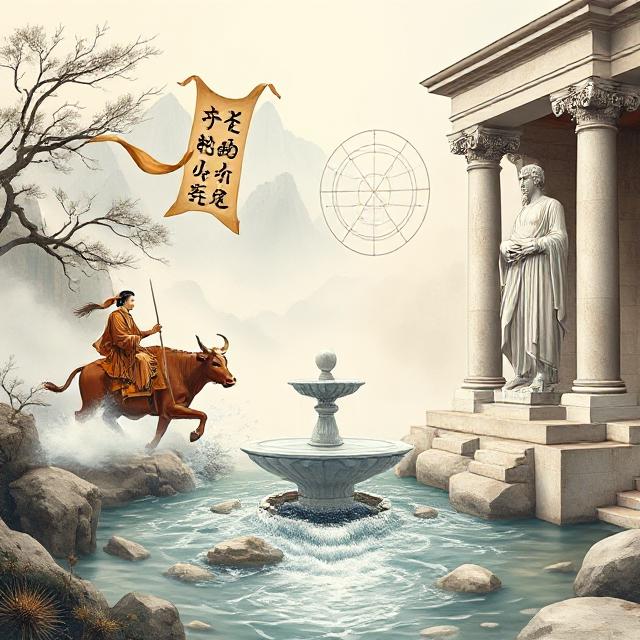
Laozi’s Naturalness vs Aristotle’s Virtue: Two Visions of the Good Life The comparison of Laozi’s naturalness vs Aristotle’s virtue reveals a profound tension in human philosophy: should we strive to cultivate our character through discipline and reason, or should we let go, returning to a more effortless alignment with nature? These two iconic figures represent…
-
Suffering in Buddhism vs Theodicy in Christianity: Why Do We Hurt?
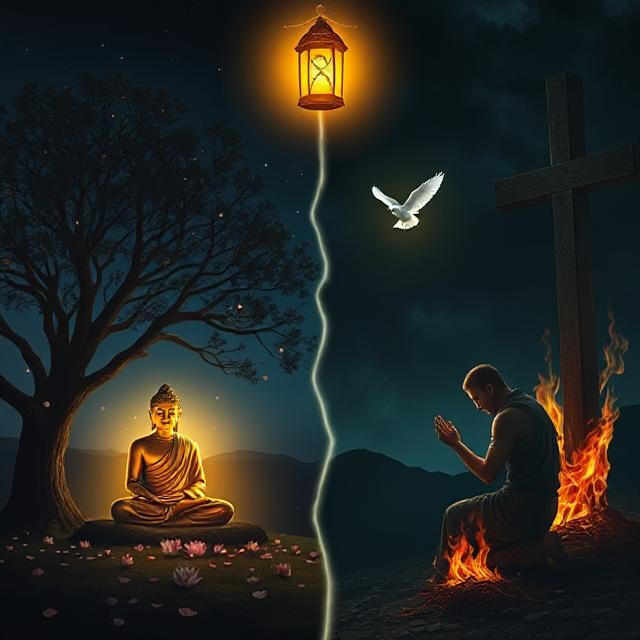
Suffering in Buddhism vs Theodicy in Christianity: Why Do We Hurt? The question of suffering has haunted every human civilization. Why do we suffer? Is there a purpose? Is it deserved, accidental, or redemptive? Suffering in Buddhism vs theodicy in Christianity reveals two distinct metaphysical frameworks—one that sees suffering as the natural result of attachment…
-
Logos vs Sunyata: Meaning and Emptiness
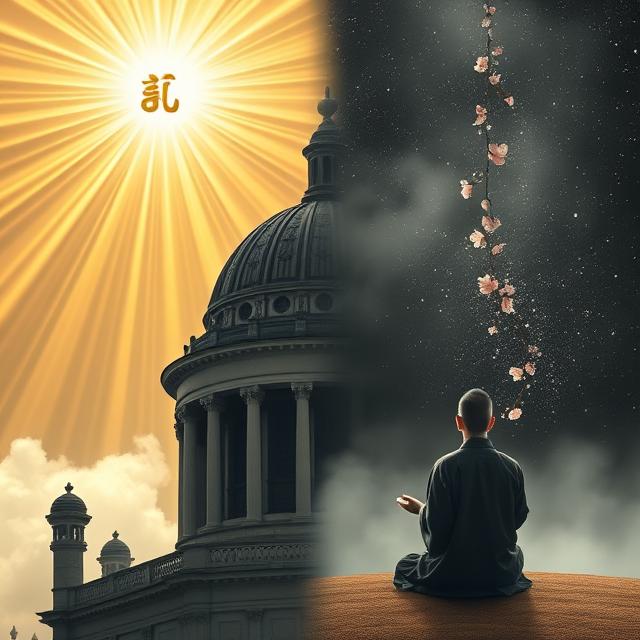
Logos vs Sunyata: Meaning and Emptiness Logos vs Sunyata reveals a philosophical and spiritual tension between the West and East: one seeks order through meaning, the other liberation through emptiness. In Christianity, Logos represents divine reason, the Word made flesh, and the intelligible structure of reality. In Mahayana Buddhism, Sunyata or emptiness represents the lack…
-
Hindu Dharma vs Greek Arete: Two Visions of Virtue
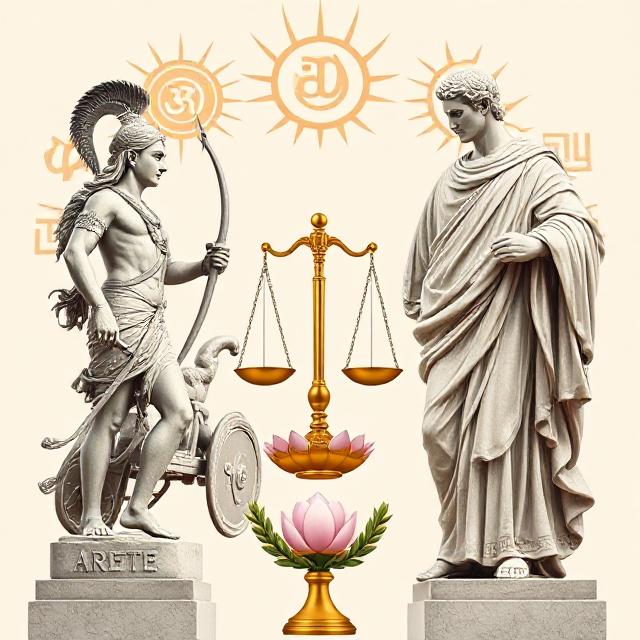
Hindu Dharma vs Greek Arete: Two Visions of Virtue Hindu Dharma vs Greek Arete is a philosophical juxtaposition that explores how ancient Indian and Greek traditions defined a meaningful life. Both systems emphasize the cultivation of virtue, yet they take radically different paths: Dharma focuses on one’s cosmic duty and role, while Arete emphasizes personal…
-
Zen Koans vs Socratic Dialogues: Paths to Enlightenment

Zen Koans vs Socratic Dialogues: Paths to Enlightenment Zen Koans vs Socratic Dialogues offers more than a cultural contrast between East and West. It presents two radical forms of philosophical questioning that stretch the human mind beyond convention: one aiming to break logic with paradox, the other sharpening logic with precision. But both seek the…
-
East’s Focus on Harmony vs West’s Focus on Autonomy: Two Paths of Thought
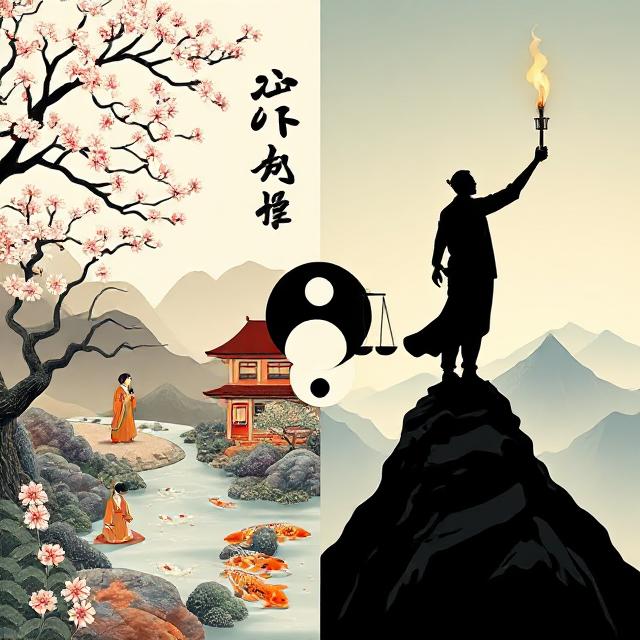
East’s Focus on Harmony vs West’s Focus on Autonomy: Two Paths of Thought The philosophical divide between East’s focus on harmony vs West’s focus on autonomy reaches deep into how cultures define the self, construct societies, and envision the good life. At its heart is a question: should individuals strive to fit seamlessly into a…
-
Dualism in Zoroastrianism vs Christianity: Two Visions of Good and Evil
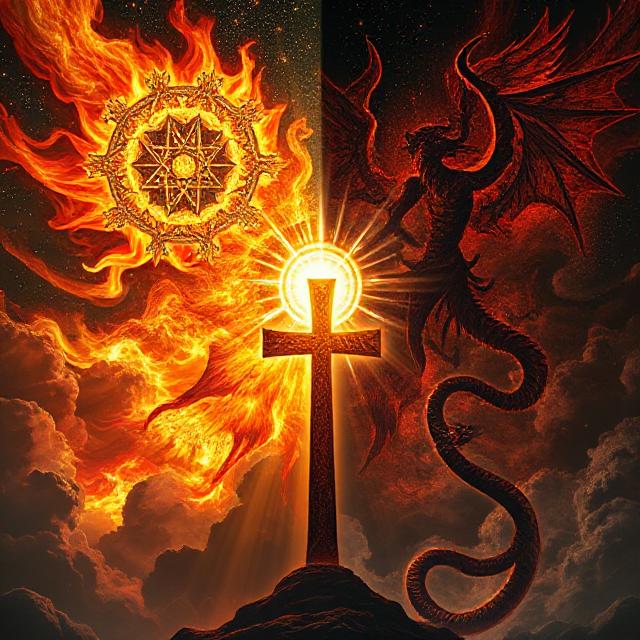
Dualism in Zoroastrianism vs Christianity: Two Visions of Good and Evil Dualism in Zoroastrianism vs Christianity reflects two of the most influential frameworks for understanding the cosmic tension between good and evil. Both traditions present the universe as a battleground—spirit vs. flesh, light vs. darkness, God vs. adversary. But while their imagery and themes often…
-
Why Some Religions Reject Icons and Images: The Power and Peril of Representation
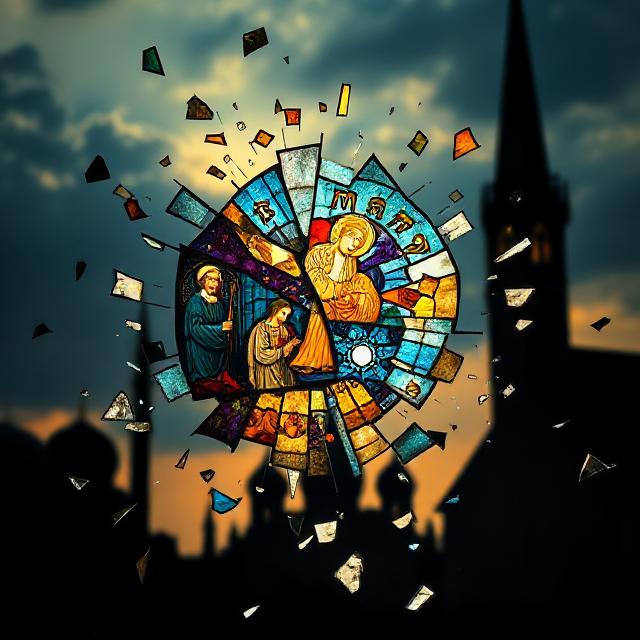
Why Some Religions Reject Icons and Images: The Power and Peril of Representation Why some religions reject icons and images is a question that reveals deep spiritual, philosophical, and psychological concerns. The act of creating images—of gods, prophets, or divine truths—has been celebrated in some cultures and condemned in others. At the heart of the…
